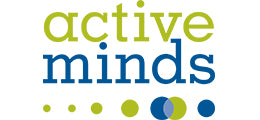What do actor Ashton Kutcher, supermodel Giselle Bundchen, NBA star Anthony Davis, and 24 icon Kiefer Sutherland have in common? They're all twins and you likely didn't know that. Hard to imagine anyone referring to any of them as part of a twin tandem as they are thought of as unique, one-of-a-kind individuals.
I am an identical twin. I'm commonly asked "What is it like to be a twin?" My visceral, sarcastic, inner-monologue retort is "What is it like to be a non-twin?" as I know nothing other than twin-hood.
My twin brother's name is Ben. It's hard to put the experience of growing up as an identical twin into words. For starters, like all twins, we shared a womb. And like 40 percent of twins, we invented our own twin language. This practice of turning baby babble into a form of "twin talk" even has a fancy name: cryptophasia.
Part of being a twin for me has been the struggle of developing my own identity while growing up looking exactly like another person. Few could tell us apart throughout grade school. Like many identical twins, we each had a “uniform” of sorts. In our case, "Benjie Blue" was the rule. So, I wore any color other than blue. Color coding is a common way to help others tell twins apart. It's better than some of the other methods used. A mother in China recently resorted to shaving numbers into her quadruplets' hair to indicate who's who.
For Ben and me, the color coding wasn't sufficient and we were often referred to as "the twins" or "them." It was challenging growing up as a twin trying to develop my own unique identity. As a result of looking alike, Ben and I sought ways to stand out. We both played sports and were naturally-mediocre athletes. We were on the same cross country team in junior high, and Ben branched out to a wide receiver / cornerback position on the high school football team. I loved playing pickup basketball and running, but gravitated towards art rather than organized sports.
Sports and working out became a way each of us could differentiate ourselves to develop that elusive identity. We chose to attend different colleges, where we both played intramural sports and lifted weights – very typical for undergrads. Over the years, we've both picked up different athletic pursuits at different times. Ben ran his first marathon in LA as a 23-year old. I ran my first marathon a decade later in Boston. I took on P90X, he enlisted the guidance of a seasoned trainer at the original Gold's Gym in Venice, CA. I played squash. He learned to surf. Athletics helped each of us define himself and become a true individual.
There are some well-known examples of twins who have excelled in the same sport, one often notably more gifted than the other. Jose and Ozzie Canseco in Major League Baseball. Brook and Robin Lopez in the NBA. Tiki and Ronde Barber of NFL fame. Emerging NCAA basketball superstars Aaron and Andrew Harrison. I met Tiki Barber recently and we discussed our experiences as identical twins. Unlike me, Tiki and his brother Ronde embraced everything twin. Both attended the University of Virginia. Both played football at a high level. However, in the NFL, they excelled in very different positions. Tiki was a hard-charging running back, while Ronde was a speedy cornerback. Tiki told me that he embraced being a twin growing up, but at the same time was intensely competitive with his brother and yearned to be recognized for his unique talents.
I hope you enjoyed learning about the twin experience and how athletics play a role in helping twins find their identities.
We'd love to hear from you. Who are your favorite twin or sibling athletes and how have they inspired you? Comment on our Facebook page at facebook.com/flytefitness or tweet us at @flytefitness.
Be Flyte Fit,
Jeremy Greenberg
Co-Founder & CEO
Flyte Fitness
